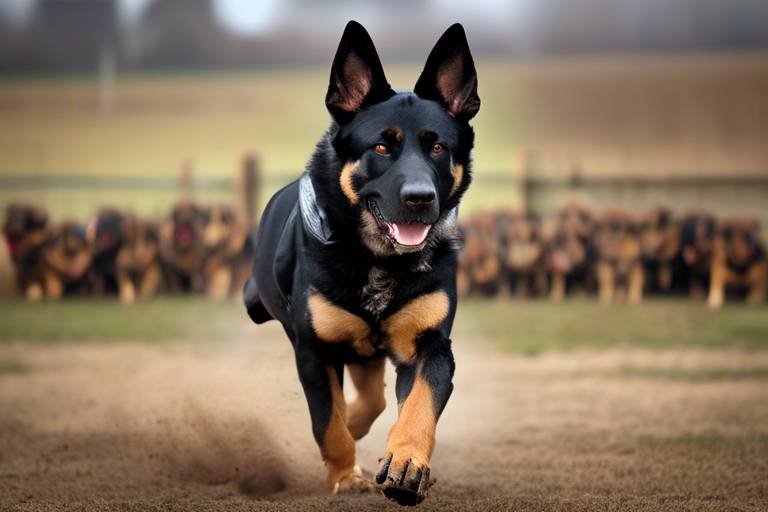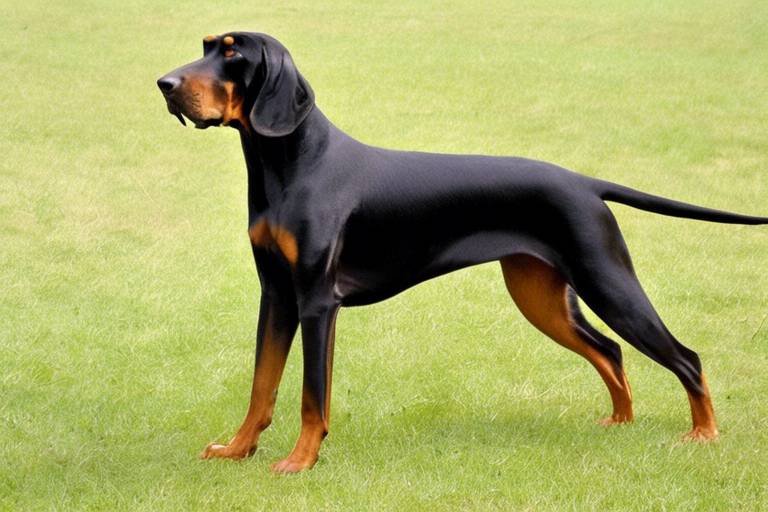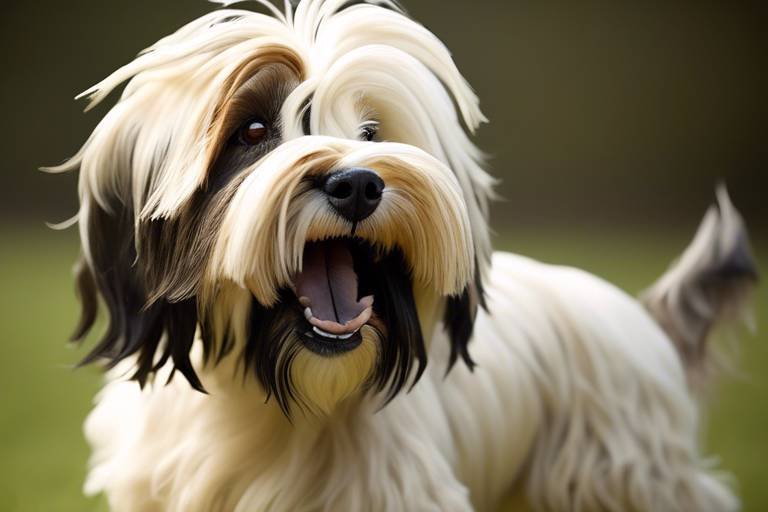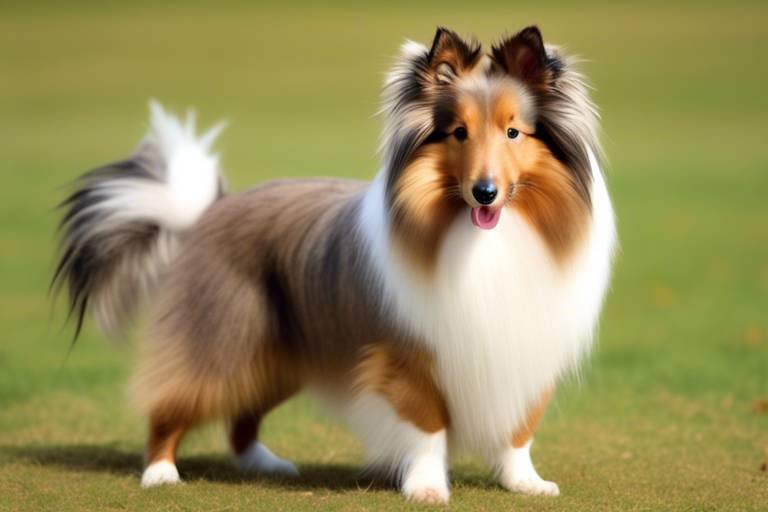The Unique Features of the Turkish Van
The Turkish Van cat is not just another feline; it’s a remarkable breed that captivates cat lovers with its unique charm and personality. Known for its stunning appearance and vibrant energy, the Turkish Van has a special place in the hearts of many. With a coat that resembles the soft waves of the Lake Van in Turkey, these cats are often referred to as "swimming cats" due to their unusual affinity for water. Imagine a cat splashing around like a playful puppy! This breed is a bundle of joy, combining beauty, intelligence, and a playful spirit that keeps their human companions entertained.
One of the most striking features of the Turkish Van is its semi-long coat, which comes in a variety of colors and patterns. The most common coloration is the distinctive "Van pattern," where the body is predominantly white with colored markings on the head and tail. Their eyes can be a mesmerizing blue or amber, and sometimes even one of each, creating an enchanting look that draws you in. This unique appearance, combined with their engaging personality, makes them a favorite among cat enthusiasts.
But it’s not just their looks that make Turkish Vans special; it’s their playful and affectionate nature that truly sets them apart. These cats are known for their high energy and love for interactive play. Whether it’s chasing after a feather wand or pouncing on a laser dot, they are always up for a game. Their playful antics can turn an ordinary day into an extraordinary one, making them the perfect companions for families and individuals alike.
In addition to their playful demeanor, the Turkish Van is also quite intelligent. They are curious creatures that love to explore their surroundings, often getting into mischief just to satisfy their inquisitive minds. This intelligence means they can be trained to perform tricks or even walk on a leash, which is a rare trait for cats. Imagine taking your cat for a stroll in the park; it’s not just a dream for Turkish Van owners, but a delightful reality!
Overall, the Turkish Van is a breed that combines beauty, playfulness, and intelligence in a way that is truly unique. Their love for water, striking appearance, and engaging personality make them a beloved choice for cat lovers around the world. If you’re considering adding a furry friend to your family, the Turkish Van might just be the perfect match for you!
- Do Turkish Van cats like water? Yes, they are known for their love of water and often enjoy playing in it!
- Are Turkish Van cats good with children? Absolutely! Their playful nature makes them great companions for kids.
- How much grooming do they require? They require minimal grooming due to their unique fur texture, but regular brushing is recommended.
- What is their lifespan? With proper care, Turkish Vans can live between 12 to 17 years.
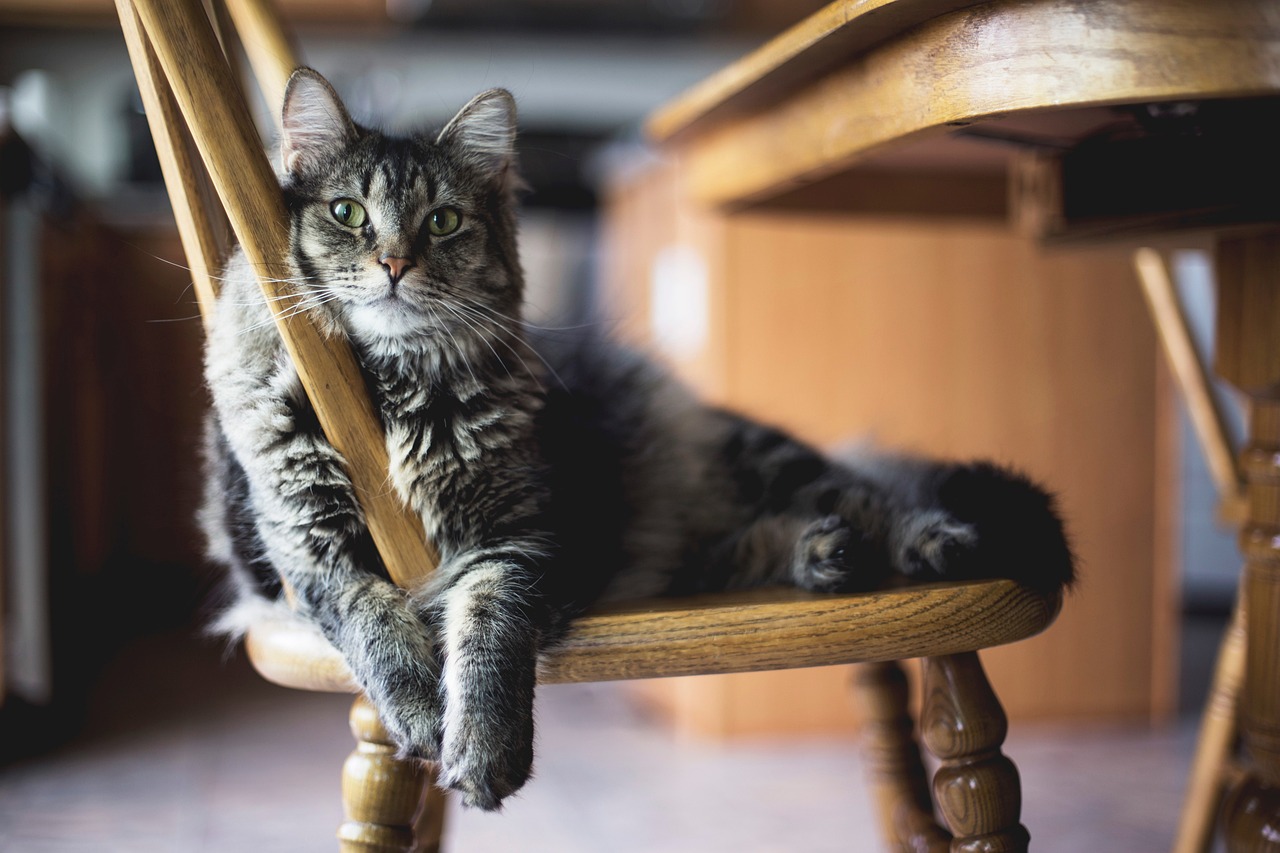
Physical Characteristics
The Turkish Van is a breed that truly captivates the eye with its stunning physical traits. Known for its semi-long coat, this cat boasts a unique texture that is both soft and water-resistant, making it a fascinating sight to behold. The coat typically features a lovely combination of white with colored patches, often seen on the head and tail, creating a striking contrast that sets them apart from many other breeds. Their fur feels luxurious to the touch, and while it may seem like a hassle to maintain, Turkish Vans require surprisingly minimal grooming due to their unique fur properties.
One of the most captivating aspects of the Turkish Van's appearance is its beautiful eyes. These felines can have either blue or amber eyes, and in some cases, they may even have one of each! This dazzling eye color adds to their allure and can make them appear almost mystical. The breed's head is also distinctive, with a broad, rounded shape and a slightly pronounced chin, giving them a regal appearance that many cat lovers find irresistible.
In terms of size, Turkish Vans are considered a medium to large breed. Males typically weigh between 10 to 18 pounds, while females are slightly smaller, weighing around 7 to 12 pounds. Their strong, muscular bodies are built for agility and play, which is essential for their active nature. These cats have a graceful gait and a long, bushy tail that adds to their elegance as they move.
To summarize, here are some key physical characteristics of the Turkish Van:
- Coat: Semi-long, soft, and water-resistant
- Color Patterns: Predominantly white with colored patches
- Eye Color: Blue, amber, or odd-eyed (one of each)
- Size: Medium to large; males weigh 10-18 lbs, females 7-12 lbs
- Body Structure: Muscular with a long, bushy tail
Overall, the Turkish Van is not just a cat; it's a living piece of art that enchants everyone who lays eyes on it. Whether you're drawn in by their striking coat, mesmerizing eyes, or their playful demeanor, these cats have a way of stealing hearts and making a lasting impression.
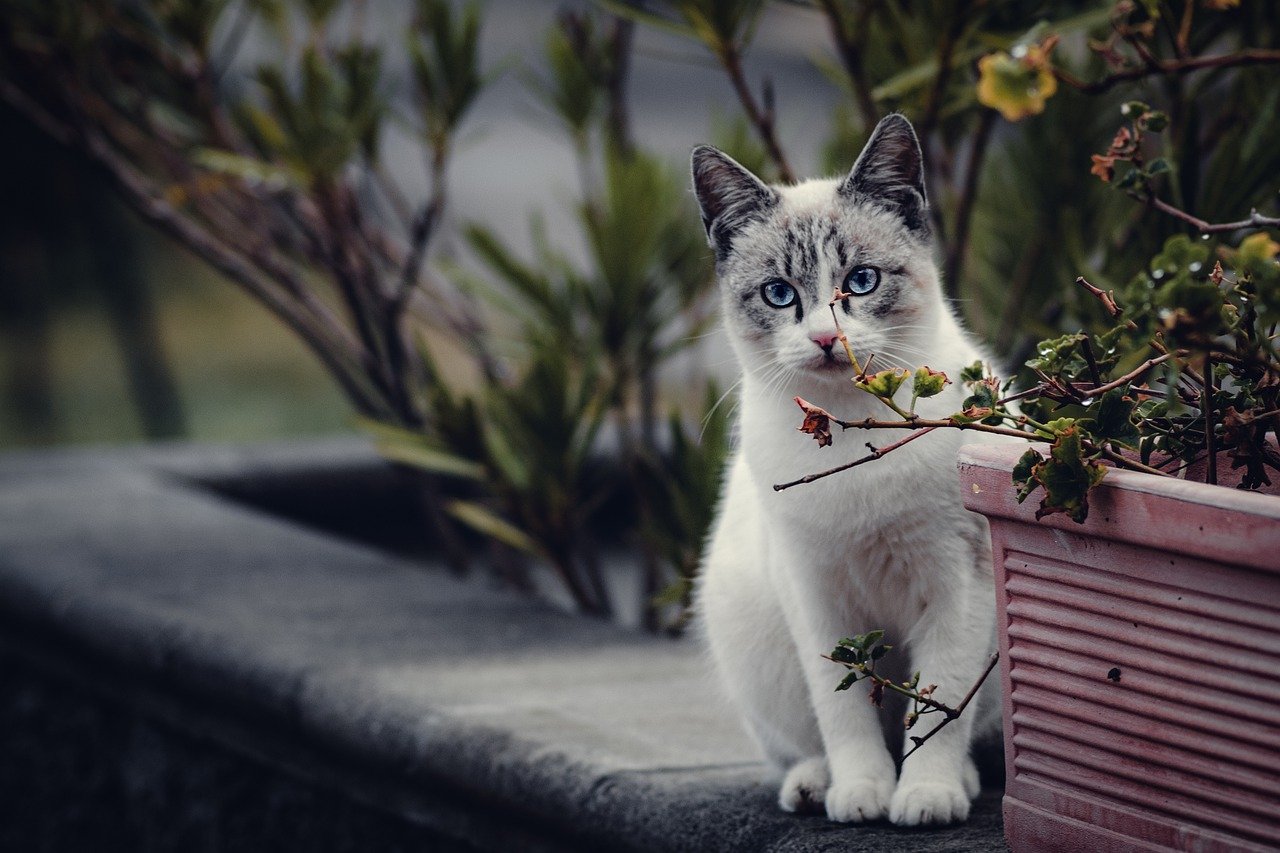
Temperament and Behavior
The Turkish Van cat is not just a pretty face; they come with a personality that can light up any room! Known for their playful and affectionate nature, these cats are like the clowns of the feline world. You’ll often find them engaging in hilarious antics, whether it’s chasing after a feather or playfully pouncing on a shadow. Their energetic disposition makes them a perfect fit for families or individuals who enjoy a lively companion. But what really sets them apart is their intelligence and curiosity. They are natural explorers, and their inquisitive minds lead them to discover new nooks and crannies within your home.
When it comes to play, Turkish Vans are the life of the party! These cats are highly active and love to engage in interactive playtime. Imagine a little furry acrobat leaping through the air to catch a toy—this is a common sight with a Turkish Van around. They thrive on activities that challenge their agility and intelligence. Whether it's a game of fetch with a crumpled ball or a spirited chase after a laser pointer, they are always ready for action. This playfulness not only keeps them fit but also strengthens the bond between them and their owners. After all, who wouldn’t want to share a laugh with their pet?
So, what toys do these playful felines prefer? Turkish Vans tend to gravitate towards toys that stimulate their natural hunting instincts. Here are a few favorites:
- Feather Wands: These toys mimic the movements of birds, triggering their instinct to pounce and chase.
- Laser Pointers: A classic choice that gets them zooming around the room in playful frenzy.
- Interactive Puzzle Toys: These challenge their intelligence and keep their minds sharp.
With such a variety of toys to choose from, you can keep your Turkish Van entertained for hours, ensuring they never get bored!
Turkish Vans are social butterflies! They thrive on interaction, often forming strong bonds with their human companions. You might find them following you around the house, seeking out cuddles and affection as part of their daily routine. Their affectionate nature means they love to curl up beside you while you read or watch TV. They’re not just pets; they’re family members who want to be included in your life. This strong desire for companionship makes them excellent pets for those who can dedicate time to their social needs.
While they love being around people, Turkish Vans also have an independent streak. This balance is what makes them so unique; they can enjoy their alone time without feeling neglected. Imagine having a friend who respects your space yet is always ready to join in on the fun when you need them. This independence means that even if you have a busy day, your Turkish Van will be just fine entertaining themselves until you’re ready to play. It’s the best of both worlds!
Q1: Are Turkish Vans good with children?
A1: Absolutely! Turkish Vans are known for their playful and affectionate nature, making them great companions for children. They enjoy interactive play and can be quite gentle.
Q2: Do Turkish Vans require a lot of grooming?
A2: Surprisingly, no! Despite their semi-long coat, Turkish Vans have a unique fur texture that requires minimal grooming. Regular brushing will keep their coat looking its best.
Q3: Are Turkish Vans prone to any health issues?
A3: Like all breeds, Turkish Vans can be susceptible to certain genetic health issues. Regular vet check-ups and a balanced diet can help mitigate these risks.
Q4: Can Turkish Vans be left alone for long periods?
A4: While they do enjoy social interaction, their independent nature allows them to be left alone for moderate periods. However, they appreciate companionship and should not be isolated for too long.
Playfulness
The Turkish Van is not just a pretty face; these cats are bursting with energy and a zest for life that makes them incredibly fun to have around. Imagine a little furball that seems to have an endless supply of enthusiasm! Their playful nature is one of the many reasons why Turkish Vans have stolen the hearts of cat lovers everywhere. They thrive on interactive play, and their agility is nothing short of impressive. Watching a Turkish Van leap and bound around your living room is like witnessing a miniature acrobat in action!
What truly sets them apart is their love for engaging games that challenge their intellect and physical prowess. Whether it's chasing after a feather wand or pouncing on a laser dot, these cats know how to keep themselves—and their owners—entertained. Their playful antics are often accompanied by a curious tilt of the head, as if they're trying to understand the world around them. This inquisitiveness only adds to their charm, making every play session an opportunity for laughter and joy.
To give you a better idea of what makes their playtime so special, here are some of their favorite activities:
- Chasing Toys: Feather wands and balls are a must-have in any Turkish Van household. They love to stalk, chase, and capture their "prey," showcasing their natural hunting instincts.
- Interactive Games: Puzzle toys that dispense treats or require problem-solving keep their sharp minds engaged and provide a rewarding experience.
- Water Play: Uniquely, Turkish Vans are known for their love of water! Many enjoy splashing around in their water bowls or even joining their humans in the bathtub.
This playful demeanor not only keeps them physically fit but also strengthens the bond between them and their human companions. Engaging in playtime is more than just a fun activity; it’s a way for you to connect with your Turkish Van on a deeper level. They thrive on this interaction, and the joy they bring is infectious. So, if you're considering adding a Turkish Van to your family, be prepared for a lively, playful companion who will keep you on your toes!
Favorite Toys
The Turkish Van cat, with its playful spirit and boundless energy, has a special affinity for toys that engage both its mind and body. Imagine a feline athlete, dashing across the room, eyes sparkling with excitement as it pounces on its next target. This breed thrives on interactive playtime, and the right toys can transform a simple afternoon into an exhilarating adventure. Among their favorites are feather wands, which mimic the fluttering movements of birds, igniting their natural hunting instincts. The thrill of the chase is irresistible, and watching a Turkish Van leap and bound after a feather is a sight to behold.
Another beloved option for these playful cats is the laser pointer. There's something magical about watching them dart around, their eyes wide with determination as they try to catch that elusive red dot. It’s like a game of cat and mouse, but with a twist that keeps them engaged and entertained for hours. However, it’s essential to ensure that playtime includes a satisfying conclusion—perhaps by allowing them to "catch" a toy at the end of the session, so they don’t get frustrated.
Additionally, Turkish Vans enjoy toys that they can bat around, such as small balls or crinkle toys. These toys not only stimulate their hunting instincts but also provide an outlet for their natural curiosity. You might find your Van swatting a ball across the floor, chasing it with fervor, or even tossing it in the air with its paws. It's this playful behavior that makes them such delightful companions. Just remember, the best toys are those that allow your Turkish Van to express its unique personality while also providing opportunities for bonding and fun.
To summarize, here are some of the Turkish Van's favorite toys:
- Feather Wands: Perfect for mimicking prey and engaging their hunting instincts.
- Laser Pointers: Provides endless entertainment as they chase the elusive dot.
- Small Balls: Great for batting around and satisfying their playful nature.
- Crinkle Toys: Stimulates their curiosity and keeps them entertained.
Social Interaction
The Turkish Van is not just a cat; it's a vibrant member of the family! These felines thrive on , making them truly unique companions in the world of pets. Picture this: a fluffy ball of energy that greets you at the door, tail held high, eager to share in your daily adventures. Their affectionate nature means they often seek out human companionship, curling up beside you on the couch or playfully nudging your hand for attention. It's almost as if they have an innate understanding of the human need for connection.
What sets Turkish Vans apart is their ability to form deep, meaningful bonds with their owners. They are not just passive observers of family life; they actively engage with it. Whether it’s following you from room to room or participating in family activities, they love being involved. You might find them perched on your shoulder like a feathered friend, ready to join in on whatever you’re doing. This constant companionship can be incredibly rewarding, as it creates a sense of belonging for both the cat and its human.
Moreover, Turkish Vans are known to express their affection in various ways. They might purr loudly when you pet them, or even give you gentle headbutts as a sign of love. They communicate their feelings openly, which makes it easier for you to understand their needs and moods. This responsiveness fosters a strong relationship, where both parties feel valued and understood.
To ensure that your Turkish Van is happy and well-adjusted, it's essential to provide them with ample opportunities for . Here are some ways to enhance their social life:
- Engage in regular play sessions, using toys that mimic prey to stimulate their hunting instincts.
- Introduce them to new environments gradually, allowing them to explore while feeling secure.
- Encourage interaction with other pets, fostering a friendly atmosphere in your home.
In essence, the Turkish Van's love for social interaction makes them a delightful addition to any household. They are not just cats; they are companions who bring joy, laughter, and a sense of community to your life. So, if you're looking for a pet that will not only keep you entertained but also fill your home with warmth and affection, the Turkish Van might just be the perfect fit for you!
- Are Turkish Vans good with children? Yes, their playful and affectionate nature makes them great companions for kids.
- Do Turkish Vans require a lot of grooming? No, their unique fur texture means they require minimal grooming, just regular brushing.
- Can Turkish Vans be left alone for long periods? While they enjoy social interaction, they also possess an independent streak, allowing them to be alone for a while.
Independence
The Turkish Van cat is a fascinating blend of sociability and independence, making them a unique companion in the world of feline friends. While they absolutely adore spending time with their human families, these cats also cherish their moments of solitude. It's almost as if they have a built-in switch that allows them to toggle between being the life of the party and a serene solo seeker. This independence is not just a personality trait; it’s a reflection of their natural instincts and heritage.
Imagine a Turkish Van lounging gracefully in a sunbeam, basking in the warmth of the day, completely content in their own company. They possess an innate ability to entertain themselves, whether it’s by chasing a shadow or observing the world from a cozy perch. This independence can be particularly advantageous for busy families or individuals who may not always be home. Turkish Vans are quite capable of amusing themselves while waiting for their humans to return, yet they will always be ready to engage in play or snuggle up when the opportunity arises.
It’s essential to strike a balance in their lives. While they enjoy their independence, Turkish Vans thrive on social interaction. They often seek out their human companions for affection and playtime, ensuring that their emotional needs are met. This duality makes them adaptable pets, as they can comfortably entertain themselves while still being affectionate and engaging when the moment calls for it.
Incorporating activities that cater to their independent nature can enhance their overall well-being. For instance, providing them with interactive toys that they can manipulate on their own can keep them stimulated. Here are some ideas:
- Puzzle Feeders: These engage their minds and encourage natural hunting behaviors.
- Cat Trees: A multi-level cat tree allows them to explore and claim their territory.
- Automated Laser Toys: These can keep them entertained while you’re away, simulating the thrill of the chase.
In conclusion, the Turkish Van's independence is a beautiful aspect of their personality that adds to their charm. They remind us that it’s perfectly fine to enjoy our own company while still valuing the bonds we share with others. This balance not only enriches their lives but also provides a fulfilling experience for their human companions.
Q: Do Turkish Vans require a lot of attention?
A: While they enjoy social interaction, Turkish Vans are quite independent and can entertain themselves, making them suitable for busy households.
Q: How do I keep my Turkish Van engaged when I'm not home?
A: Providing interactive toys, puzzle feeders, and climbing structures can help keep them mentally and physically stimulated.
Q: Are Turkish Vans good with children and other pets?
A: Yes! Turkish Vans are known for their playful and affectionate nature, making them great companions for children and other pets.
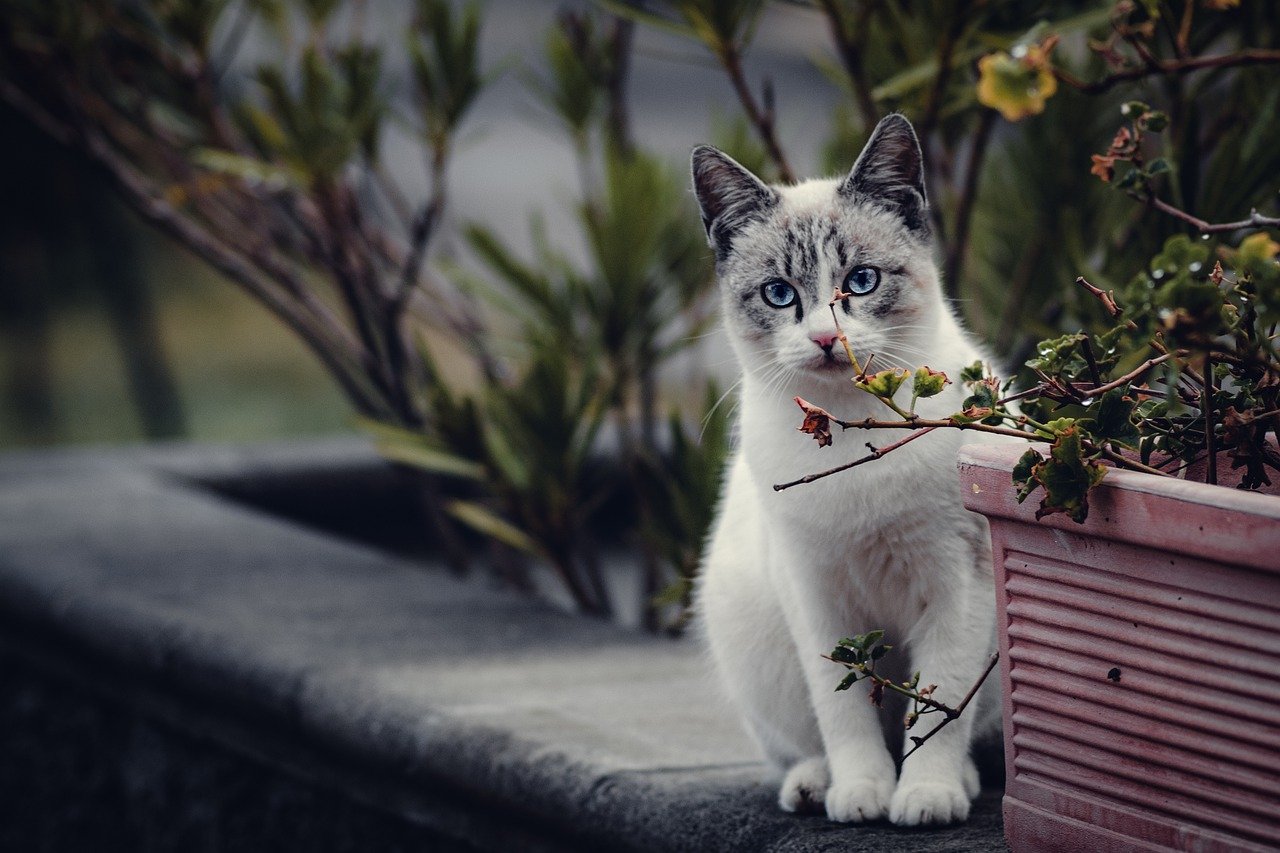
History and Origin
The Turkish Van breed boasts a rich and vibrant history that traces back to the stunning shores of Lake Van in eastern Turkey. This region, known for its breathtaking landscapes and unique wildlife, played a pivotal role in shaping the characteristics of the Turkish Van cat. Historically, these cats were not just pets; they were revered for their exceptional hunting abilities, particularly in catching rodents and other small animals that threatened local livelihoods. Their skillful prowess made them invaluable companions to the local communities.
In the local culture, the Turkish Van holds a special place, often depicted in folklore and legends. These stories highlight their striking beauty and grace, further solidifying their status as beloved companions. The cats are often associated with the region's rich tapestry of traditions, symbolizing the harmony between nature and humanity. It’s fascinating to think about how these cats have not only survived but thrived in a landscape that is as much a part of their identity as their unique physical traits.
The journey of the Turkish Van to international recognition began in the 20th century, when explorers and cat enthusiasts discovered this remarkable breed. They were captivated by the Turkish Van's distinctive characteristics—its striking white coat with colored markings and mesmerizing blue or amber eyes. Breeders and cat fanciers began to take a keen interest in preserving the breed, ensuring that its unique traits and personality were not lost to time. The breed's charm quickly spread beyond Turkey, captivating cat lovers around the globe and leading to its eventual recognition by various cat registries.
Today, the Turkish Van is celebrated not only for its beauty but also for its playful and affectionate demeanor. As they made their way into homes worldwide, they brought with them a piece of their rich heritage, reminding us of the deep connections between animals and the cultures they come from. The ongoing efforts to promote and preserve the Turkish Van breed reflect a commitment to maintaining the integrity of this unique cat, ensuring that future generations can enjoy the companionship of these extraordinary felines.
In Turkey, the Turkish Van is much more than just a cat; it is a symbol of the region's heritage. Local legends often tell tales of these cats as guardians of homes, believed to bring good fortune and protect against evil spirits. The cultural significance of the Turkish Van extends to art and literature, where they are often featured as symbols of grace and beauty. Their presence in traditional Turkish homes is a testament to the deep bond shared between these cats and their human companions.
As the world became more interconnected, the Turkish Van began to capture the hearts of cat lovers far beyond its homeland. The breed's unique characteristics and playful nature led to its recognition by various international cat associations. This newfound fame sparked a surge in interest, with breeders working diligently to maintain the breed's distinctive traits while ensuring their health and well-being. The Turkish Van has since become a beloved breed in many countries, celebrated for both its beauty and its engaging personality.
- What is the average lifespan of a Turkish Van? Turkish Vans typically live between 12 to 17 years, depending on their health and care.
- Are Turkish Vans good with children? Yes! Turkish Vans are known for their playful and affectionate nature, making them great companions for children.
- Do Turkish Vans require special grooming? While they have a semi-long coat, they require minimal grooming due to their unique fur texture. Regular brushing is usually sufficient.
- Are Turkish Vans prone to any health issues? Like all breeds, they can face certain genetic health issues, but regular vet check-ups and a balanced diet can help mitigate these risks.
Cultural Significance
The Turkish Van cat is not merely a pet; it is a symbol deeply rooted in the culture and traditions of its native region, the Lake Van area in Turkey. This breed has been celebrated for centuries, often depicted in local folklore and art, showcasing its importance as a cherished companion. The Turkish Van is often referred to as the "swimming cat" because of its love for water, a trait that has been woven into the fabric of local legends. In these stories, they are often portrayed as mystical creatures, embodying grace and agility, making them an integral part of the cultural narrative.
In many Turkish households, the Turkish Van is considered a family member. Their affectionate nature and playful antics have earned them a special place in the hearts of many. It's not uncommon for families to pass down stories of their beloved Vans, highlighting their unique personalities and the joy they bring. The breed is also associated with various local legends, where they are often seen as protectors of the home, warding off evil spirits and bringing good fortune.
The significance of the Turkish Van extends beyond mere companionship. It plays a role in the local economy, as many families engage in breeding and showcasing these cats. Events and exhibitions celebrating the breed attract both locals and tourists, fostering a sense of community and pride. The Turkish Van's striking appearance and captivating personality have made it a beloved breed, not just in Turkey but around the world.
Moreover, the Turkish Van is a symbol of national pride for many in Turkey. Efforts to preserve the breed and promote its unique traits have led to increased recognition on an international scale. This has resulted in various organizations dedicated to the welfare and preservation of the Turkish Van, ensuring that future generations can appreciate this magnificent breed. In essence, the Turkish Van is more than just a cat; it is a cultural icon that represents the rich heritage and tradition of its homeland.
International Recognition
The journey of the Turkish Van cat towards is as fascinating as the breed itself. Initially, these magnificent felines were confined to the Lake Van region in Turkey, where they were cherished for their unique characteristics and playful nature. However, as the world began to take notice of their striking appearance and engaging personality, efforts to promote and preserve the breed intensified. The Turkish Van's rise to fame can be attributed to several key factors:
- Unique Traits: Their semi-long fur, distinctive color patterns, and captivating blue or amber eyes make them visually stunning.
- Personality: Known for their playful and affectionate nature, Turkish Vans quickly became favorites among families and cat enthusiasts.
- Preservation Efforts: Dedicated breeders and cat fanciers worked tirelessly to maintain the breed's unique traits, ensuring they remained true to their origins.
In the 20th century, the breed gained significant traction beyond Turkey. Cat shows and exhibitions began to feature Turkish Vans, allowing them to showcase their agility and charm on a global stage. This exposure sparked interest among cat lovers worldwide, leading to the establishment of breed clubs and organizations dedicated to promoting the Turkish Van. Notably, the breed was recognized by various cat registries, which further solidified its status in the international cat community.
As Turkish Vans continued to capture hearts, their presence in popular culture also grew. They have been featured in numerous publications and media, further enhancing their appeal. The breed's unique history, combined with its playful demeanor, has made it a subject of fascination for many. Today, Turkish Vans are not just pets; they are celebrated for their cultural significance and are seen as symbols of beauty and grace.
In summary, the Turkish Van's journey from a regional treasure to an internationally recognized breed is a testament to its unique characteristics and the dedication of those who love and care for them. Their story is one of resilience and charm, making them a beloved choice for cat enthusiasts around the globe.
- What is the lifespan of a Turkish Van? Turkish Vans typically live between 12 to 17 years, depending on their health and care.
- Are Turkish Vans good with children? Yes, Turkish Vans are known for their playful and affectionate nature, making them great companions for children.
- Do Turkish Vans require a lot of grooming? They have a semi-long coat that requires minimal grooming, but regular brushing helps keep their fur in good condition.
- What is the temperament of a Turkish Van? Turkish Vans are known for their playful, intelligent, and affectionate temperament, often forming strong bonds with their human companions.
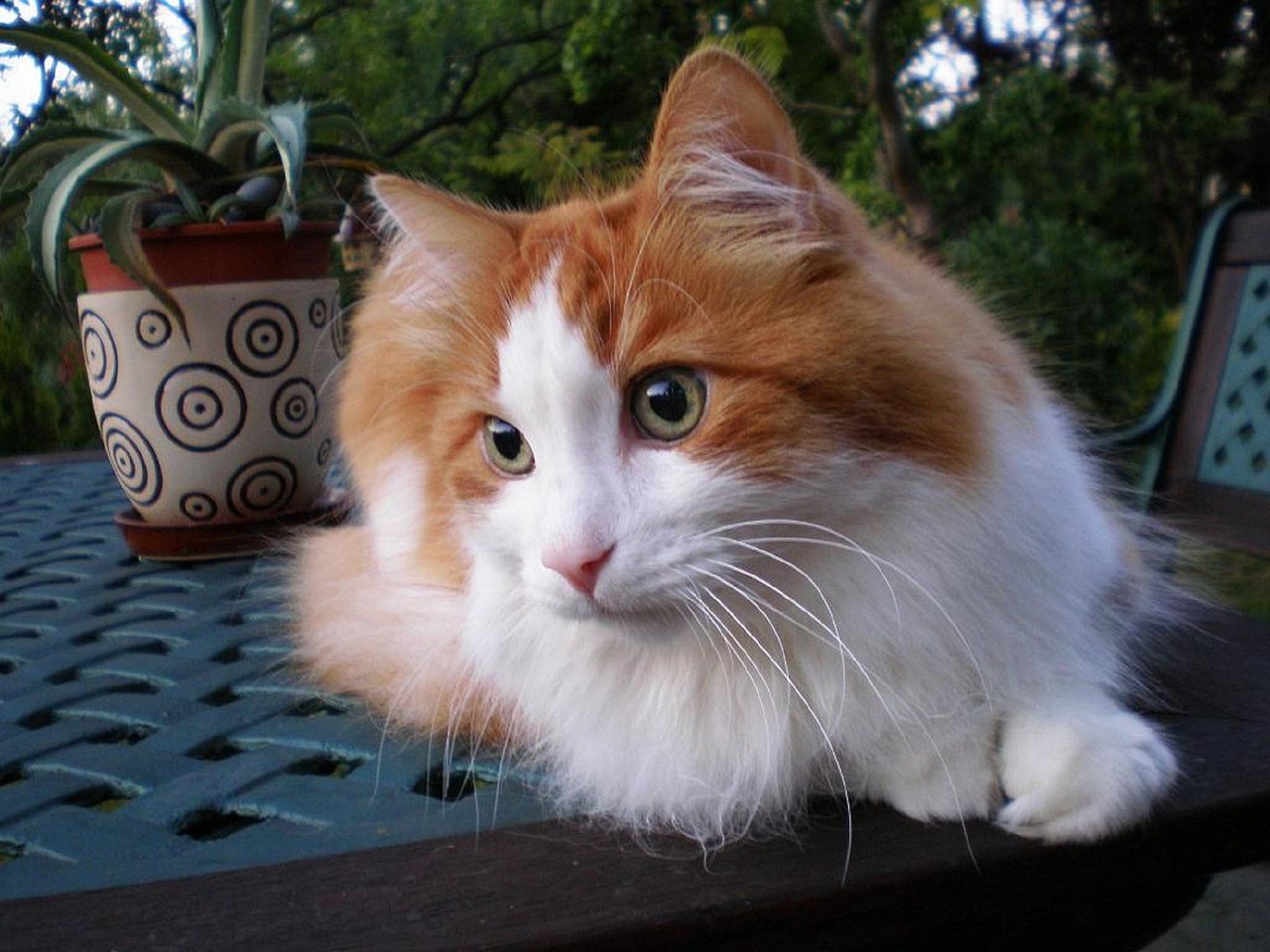
Health and Care
Understanding the health needs and care requirements of Turkish Vans is essential for maintaining their well-being, ensuring they lead happy and healthy lives as cherished pets. Just like any other breed, these beautiful cats can face certain health challenges, but with the right knowledge and proactive care, many of these issues can be managed or even avoided altogether. Regular veterinary check-ups are crucial; they help in early detection of potential health problems, allowing for timely intervention. A well-balanced diet tailored to their specific needs will not only keep them in great shape but also boost their immune system, making them less susceptible to common ailments.
Turkish Vans are generally robust, but they can be prone to some genetic health issues. Here are a few common concerns to watch out for:
- Hypertrophic Cardiomyopathy (HCM): A heart condition that can affect many cat breeds, including Turkish Vans.
- Obesity: Due to their playful nature, it's easy for these cats to become overweight if their diet isn't monitored.
- Dental Issues: Regular dental care is important to prevent periodontal disease.
When it comes to grooming, Turkish Vans are quite low-maintenance despite their semi-long coat. Their unique fur texture allows for minimal grooming needs. A good brushing session once a week is typically sufficient to keep their coat healthy and reduce shedding. This not only helps in keeping their fur looking its best but also serves as a bonding experience between you and your feline friend. It's a great opportunity to check for any unusual lumps or skin issues that may need attention.
Another aspect of their care involves providing mental stimulation and physical exercise. Turkish Vans are known for their playful and energetic nature, so interactive toys, climbing trees, and engaging playtime are essential. Not only do they enjoy chasing after feather wands and laser pointers, but these activities also contribute to their overall health by keeping them active and engaged. Remember, a bored cat is more likely to develop behavioral issues, so make sure to keep their environment stimulating.
As you embark on the journey of caring for a Turkish Van, you might have some questions. Here are a few frequently asked questions that can help:
| Question | Answer |
|---|---|
| How often should I take my Turkish Van to the vet? | It's recommended to schedule a vet visit at least once a year for routine check-ups and vaccinations. |
| What is the best diet for a Turkish Van? | A high-quality, protein-rich diet is ideal. Consult your vet for specific recommendations based on your cat's age and health. |
| Do Turkish Vans require special grooming? | They need minimal grooming due to their unique fur, but regular brushing will help keep their coat healthy. |
| Are Turkish Vans prone to any specific health issues? | Yes, they can be prone to hypertrophic cardiomyopathy and obesity, among other conditions. |
In conclusion, caring for a Turkish Van involves a mix of regular veterinary care, a balanced diet, and plenty of love and attention. By keeping an eye on their health and providing a stimulating environment, you can ensure that your Turkish Van lives a long, happy, and healthy life.
Common Health Issues
This article explores the distinctive characteristics of the Turkish Van cat, including its striking appearance, playful personality, and fascinating history, making it a beloved breed among cat enthusiasts.
The Turkish Van is known for its striking appearance, featuring a semi-long coat, unique color patterns, and captivating blue or amber eyes that make it stand out among other breeds.
These cats are renowned for their playful and affectionate nature. Their intelligence and curiosity lead to engaging behaviors that endear them to families and individuals alike.
Turkish Vans are highly active and enjoy interactive play. They often engage in games that showcase their agility and intelligence, making them entertaining companions for their owners.
Turkish Vans tend to favor toys that stimulate their hunting instincts, such as feather wands and laser pointers, allowing them to express their playful side in a safe environment.
These cats thrive on social interaction and often form strong bonds with their human companions, seeking affection and companionship as part of their daily routine.
While Turkish Vans are social, they also possess an independent streak. This balance allows them to enjoy time alone while still seeking human interaction when desired.
The Turkish Van breed has a rich history that dates back to the Lake Van region in Turkey, where they were revered for their unique characteristics and hunting abilities.
In their native region, Turkish Vans hold cultural importance, often associated with local legends and traditions that highlight their beauty and grace as beloved companions.
The breed gained international recognition in the 20th century, leading to increased interest and efforts to preserve its unique traits and characteristics in the global cat community.
Understanding the health needs and care requirements of Turkish Vans is essential for maintaining their well-being, ensuring they lead happy and healthy lives as cherished pets.
Like all breeds, Turkish Vans can be prone to specific genetic health issues. Some of the most common health concerns include:
- Hypertrophic Cardiomyopathy (HCM): This is a heart condition that affects the heart muscles, leading to potential heart failure.
- Obesity: Due to their playful nature, Turkish Vans can sometimes become overweight if not properly exercised.
- Dental Issues: Regular dental care is crucial as they can develop periodontal disease if their teeth are not maintained.
To mitigate these risks, regular vet check-ups and a balanced diet are essential. It's also important to keep an eye on their weight and activity levels, ensuring they get plenty of exercise to maintain their health and vitality. By providing a balanced diet rich in nutrients and engaging them in playful activities, you can help your Turkish Van lead a long and healthy life.
The average lifespan of a Turkish Van is typically between 12 to 17 years, depending on their health and care.
Yes! Turkish Vans are known for their friendly and playful nature, making them great companions for children.
Despite their semi-long coat, Turkish Vans require minimal grooming due to their unique fur texture. Regular brushing helps reduce shedding and keeps their coat looking its best.
Grooming Needs
This article explores the distinctive characteristics of the Turkish Van cat, including its striking appearance, playful personality, and fascinating history, making it a beloved breed among cat enthusiasts.
The Turkish Van is known for its striking appearance, featuring a semi-long coat, unique color patterns, and captivating blue or amber eyes that make it stand out among other breeds.
These cats are renowned for their playful and affectionate nature. Their intelligence and curiosity lead to engaging behaviors that endear them to families and individuals alike.
Turkish Vans are highly active and enjoy interactive play. They often engage in games that showcase their agility and intelligence, making them entertaining companions for their owners.
Turkish Vans tend to favor toys that stimulate their hunting instincts, such as feather wands and laser pointers, allowing them to express their playful side in a safe environment.
These cats thrive on social interaction and often form strong bonds with their human companions, seeking affection and companionship as part of their daily routine.
While Turkish Vans are social, they also possess an independent streak. This balance allows them to enjoy time alone while still seeking human interaction when desired.
The Turkish Van breed has a rich history that dates back to the Lake Van region in Turkey, where they were revered for their unique characteristics and hunting abilities.
In their native region, Turkish Vans hold cultural importance, often associated with local legends and traditions that highlight their beauty and grace as beloved companions.
The breed gained international recognition in the 20th century, leading to increased interest and efforts to preserve its unique traits and characteristics in the global cat community.
Understanding the health needs and care requirements of Turkish Vans is essential for maintaining their well-being, ensuring they lead happy and healthy lives as cherished pets.
Like all breeds, Turkish Vans can be prone to specific genetic health issues. Regular vet check-ups and a balanced diet can help mitigate these risks and promote longevity.
Despite their semi-long coat, Turkish Vans require minimal grooming due to their unique fur texture. Their fur is not only beautiful but also designed in a way that helps reduce matting and tangling. A weekly brushing is typically sufficient to keep their coats looking radiant and to manage shedding. This is especially important during the shedding season, which usually occurs in spring and fall. Regular grooming not only helps to maintain their appearance but also serves as a bonding activity between you and your furry friend.
It's worth noting that Turkish Vans have a water-repellent coat that allows them to enjoy splashing around without getting soaked. This characteristic is a part of their natural history, as they are known to be fond of water. However, if your Van enjoys a bit too much playtime in the water, a gentle bath might be necessary. When bathing, use a cat-friendly shampoo, and ensure you rinse thoroughly to avoid any skin irritation.
Additionally, paying attention to their ears and teeth is crucial. Regular checks and cleanings can prevent common health issues. A simple routine of ear cleaning and dental care can go a long way in ensuring your Turkish Van remains healthy and happy.
- Do Turkish Vans get along with other pets? Yes, Turkish Vans are generally friendly and can get along well with other pets, especially if socialized from a young age.
- How much exercise do Turkish Vans need? These cats are very active and require plenty of playtime and mental stimulation to keep them happy and healthy.
- Are Turkish Vans hypoallergenic? No, Turkish Vans are not hypoallergenic, but some people may find them less irritating than other breeds.
- Can Turkish Vans be left alone? While they enjoy companionship, they can be left alone for moderate periods, thanks to their independent nature.
Frequently Asked Questions
- What are the distinctive physical features of the Turkish Van?
The Turkish Van is known for its striking semi-long coat, which is often predominantly white with colored markings on the head and tail. Their captivating blue or amber eyes add to their unique charm, making them stand out in any crowd. These cats have a muscular build and a bushy tail that enhances their playful appearance.
- How would you describe the temperament of a Turkish Van?
Turkish Vans are renowned for their playful and affectionate nature. They are intelligent and curious, often engaging in entertaining behaviors that make them delightful companions. Their social nature means they thrive on interaction with humans, forming strong bonds with their families while also enjoying their independent moments.
- What types of toys do Turkish Vans prefer?
These cats love toys that stimulate their hunting instincts, such as feather wands, laser pointers, and interactive puzzles. Engaging them with these toys not only helps them stay active and healthy but also satisfies their natural curiosity and intelligence.
- What is the historical significance of the Turkish Van breed?
The Turkish Van breed has a rich history that traces back to the Lake Van region in Turkey, where they were admired for their unique characteristics and hunting skills. They hold cultural significance in local legends and traditions, often celebrated for their beauty and grace as cherished companions.
- Are there any common health issues associated with Turkish Vans?
Like many breeds, Turkish Vans can be prone to specific genetic health issues. Regular veterinary check-ups and a balanced diet are essential to help mitigate these risks and ensure they lead long, healthy lives. It's always a good idea to stay informed about their health needs.
- How much grooming do Turkish Vans require?
Despite their semi-long coat, Turkish Vans require minimal grooming due to their unique fur texture. Regular brushing helps reduce shedding and keeps their coat looking its best, making maintenance easier for busy pet owners.



